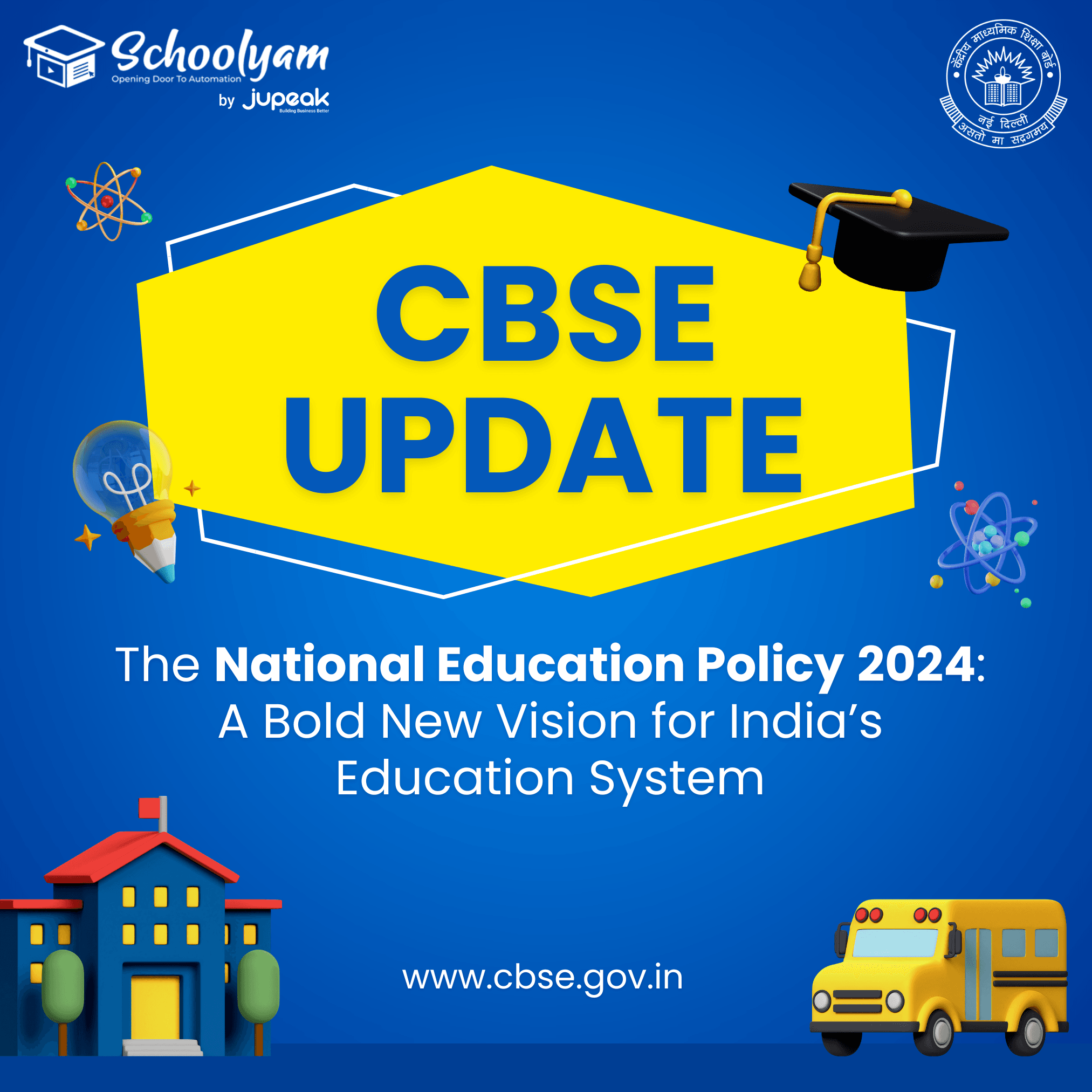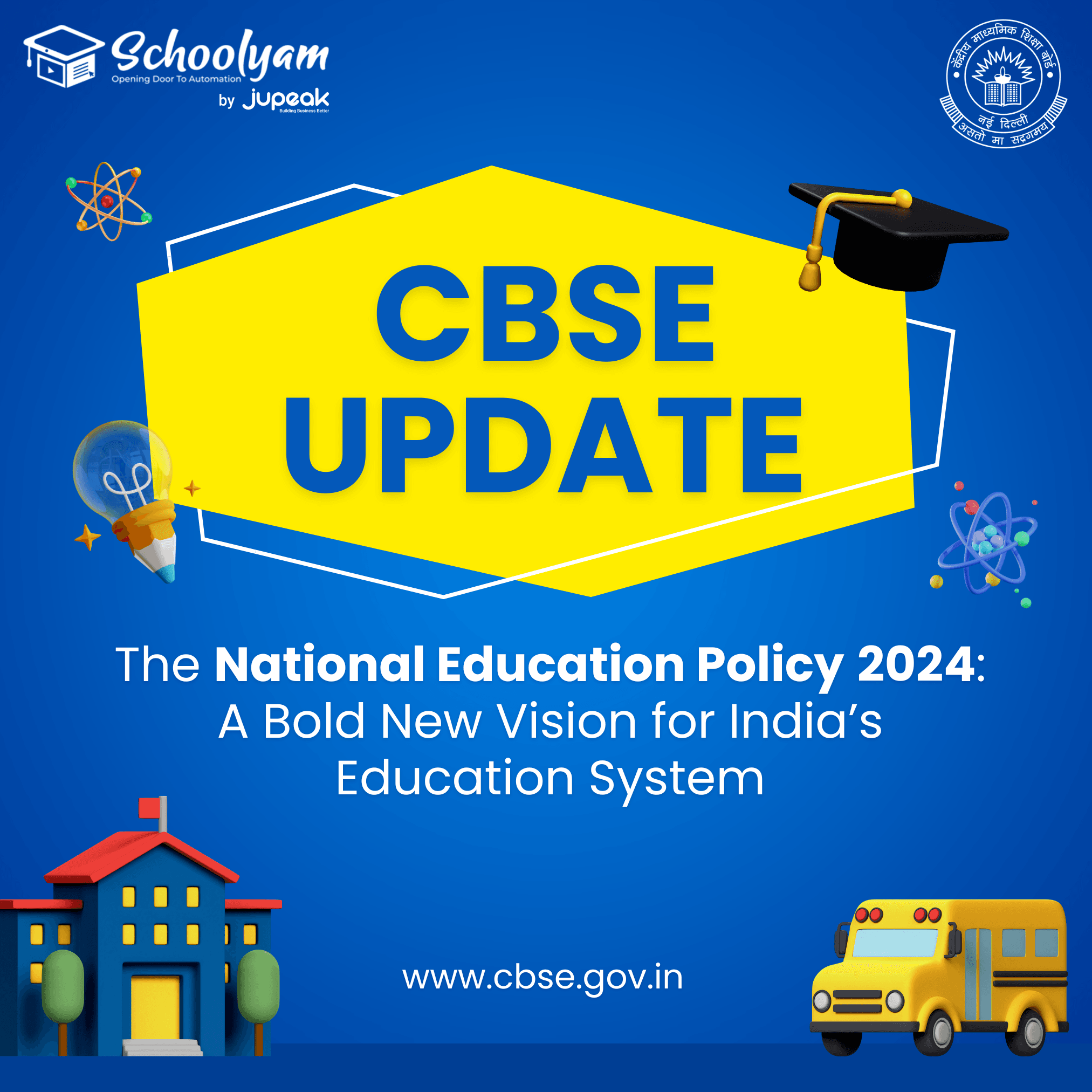
Introduction to National Education Policy 2024: A Vision for Modern Education
The National Education Policy (NEP) 2024 is a transformative step towards creating an education system that meets the needs of the 21st century. This comprehensive overhaul of India’s education system promises to make learning more inclusive, accessible, and future-oriented. Let’s explore some of the key features of NEP 2024 and how they aim to redefine education in India.

1. Restructured School Education System: 5+3+3+4 Model
One of the major changes is the replacement of the traditional 10+2 system with a new 5+3+3+4 structure:
- Foundational Stage (5 years): Ages 3-8, focusing on activity-based learning.
- Preparatory Stage (3 years): Ages 8-11, with an emphasis on play, discovery, and interactive classroom activities.
- Middle Stage (3 years): Ages 11-14, focused on experiential learning in sciences, mathematics, arts, and social sciences.
- Secondary Stage (4 years): Ages 14-18, providing greater subject choice, multidisciplinary study, and exposure to vocational skills.
This structure is designed to be age-appropriate and developmentally aligned, supporting a more gradual and tailored learning experience.
2. Cross-Disciplinary Subject Choice
Gone are the rigid Arts, Science, and Commerce streams. NEP 2024 introduces flexibility for students to select subjects across disciplines, allowing them to tailor their education to their interests and strengths. This cross-disciplinary approach encourages a well-rounded knowledge base, fostering creativity and innovation.
3. Emphasis on Early Childhood Care and Education (ECCE)
Recognizing the importance of early childhood years, the NEP focuses on Early Childhood Care and Education (ECCE). It ensures that children aged 3-6 have access to quality preschool education that nurtures cognitive, emotional, and social development, laying a strong foundation for lifelong learning.
4. Vocational Education from Grade 6
Vocational education will now start in Grade 6, aiming to equip students with practical skills early on. This approach not only builds a skilled workforce but also helps students explore various career paths before they enter the job market.
5. Higher Education Restructuring
In higher education, NEP 2024 envisions a holistic, flexible, and multidisciplinary approach, with more freedom to choose subjects and explore different academic streams. The restructuring will emphasize critical thinking, creativity, and practical learning, creating graduates better prepared for the real world.
6. Integration of Technology in Education
To improve learning outcomes, NEP 2024 stresses the importance of incorporating technology. The policy calls for the use of digital platforms, artificial intelligence, and other innovations to support personalized learning, increase accessibility, and enhance educational quality.
7. Research-Intensive Universities
The NEP 2024 introduces the establishment of research-intensive universities aimed at fostering a culture of research and innovation. These institutions will encourage students to engage in research projects, promote critical thinking, and contribute to national and global knowledge systems.
8. Global Exposure Through International Collaborations in the National Education Policy 2024
To broaden perspectives and enrich academic experiences, NEP 2024 advocates for international partnerships, allowing students and institutions to benefit from global exposure. This encourages knowledge exchange, cultural understanding, and collaborative research opportunities.
9. Emphasis on Multilingualism and Classical Languages
In support of India’s rich linguistic heritage, NEP 2024 emphasizes multilingualism. Students will learn Sanskrit and have opportunities to explore other classical languages like Tamil, Telugu, Kannada, Malayalam, and Odia. This not only preserves linguistic diversity but also enhances cognitive skills through language learning.
10. Sports-Integrated Pedagogy
Recognizing the role of physical health in academic success, NEP 2024 introduces sports-integrated pedagogy. Sports and physical activities will be an integral part of the curriculum, promoting teamwork, resilience, and physical fitness, and supporting holistic development.
Conclusion
The National Education Policy 2024 is a visionary framework that seeks to create an adaptable and future-ready education system. By focusing on inclusivity, flexibility, and holistic development, NEP 2024 equips students with the skills and knowledge they need to thrive in an ever-evolving world. It holds the potential to transform the educational landscape of India, fostering a generation of learners prepared for global challenges and opportunities.




2 thoughts on “The National Education Policy 2024: A Bold New Vision for India’s Education System”